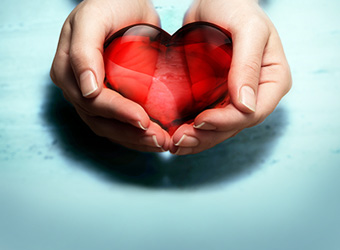How to Look After Your Gut This Christmas
advice from dietitian Jo Travers for Love Your Gut

Christmas is such fun, and we’re particularly looking forward to it this year, but let’s not forget that it’s also a time when lots of effort goes into making everything perfect, including all those delicious, indulgent foods. And yes! As we all know! Those same delicious, indulgent foods can lead to gut misery – so why not take Jo’s tips to heart and make sure that while you look after the others your gut will look after you!
Our digestive health has the power to impact everything, however, from our mood and immunity to our weight, so it’s important to make sure we give it the love and attention it deserves!
To help, dietitian Jo Travers for Love Your Gut has shared advice on five simple ways to care for your gut health over the coming days and weeks.
So why not give Jo’s tips a go this festive season? In return, your gut will look after you!
Keep moving
Jo says; “Although it can be tempting to spend the majority of the Christmas break on the sofa, it is important to stay active, whether it is enjoying a home workout, or getting outdoors once a day for a walk, jog or cycle. Getting enough exercise can increase populations of some bacteria that can reduce inflammation[1]. It also aids peristalsis – the movement of food through the gut – and may help to improve symptoms of constipation[2].”.
Get enough sleep
Jo says; The excitement of the festive period and a lengthy to do list can all affect sleep, but it is important to make sure you get enough of it, as it has been shown to have a direct effect on our microbiota. Even two nights of disrupted sleep has been shown to disrupt the ratio of two strains of bacteria thought to be involved in obesity[3]. To help promote good quality sleep, stick to a regular bedtime and wakeup time, and make sure your bedroom is dark and quiet. Wake-up hormones are stimulated by light and as the sun comes up earlier this can interrupt the end part of sleep. If you need to, invest in a sleep mask. Avoiding caffeine and alcohol in the evenings also helps with a sound night’s sleep[4]”
Manage stress
Jo says; “Although the festive period can be stressful, it is important to try and manage this for a healthy gut. Stress – physical or psychological – triggers a chain reaction in the body, including the production of the stress hormone cortisol, which can cause impairment of the communication pathways between the gut and the brain, known as the gut-brain axis[1]. This can mean changes to blood flow and secretions in the gut, which can create better conditions for pathological bacteria and inhibit the growth of some helpful bacteria[2]. It can also affect the movement of food through the gut and result in either constipation or diarrhoea[3]. To help manage stress you can try yoga, going for a walk, breathing exercises, or meditation. Try a few activities out to find one that works for you.”
Get into nature
Jo says; “That Boxing Day walk could be having more of a benefit than you might think! Just coming into contact with the outdoors is enough to influence your gut bacteria. Microscopic airborne particles are colonised by a variety of bacteria that make their way into us via the air we breathe[4].”
Support Your Immunity
Jo says; “There is a strong link between gut health and the immune system. The bacteria in our gut ‘teach’ our immune systems what is harmful and what isn’t. This helps make sure the immune system doesn’t over react when exposed to antigens and keeps inflammation in check[5]. This important bacteria thrives when we eat plenty of plant fibre; get some exercise; sleep well and manage our stress – so all of the above!”
For more information visit www.loveyourgut.com
Don’t forget to check out our recipes too!
References:
1https://www.ncbi.nlm.nih.gov/pmc/articles/PMC5357536/
2De Schryver AM et al. (2005) Effects of regular physical activity on defecation pattern in middle-aged patients complaining of chronic constipation. Scand J Gastroenterol. 40(4):422-9.
3 https://www.sciencedirect.com/science/article/pii/S2212877816301934?via%3Dihub
4 NICE guidance (2020),Insomnia. https://cks.nice.org.uk/insomnia#!scenarioRecommendation:1
5 Konturek PC et al.(2011). Stress and the gut: Pathophysiology, clinical consequences, diagnostic approach and treatment options. Journal of Physiology and Pharmacology: an Official Journal of the Polish Physiological Society. 62. 591-9.
6 Konturek PC et al.(2011). Stress and the gut: Pathophysiology, clinical consequences, diagnostic approach and treatment options. Journal of Physiology and Pharmacology: an Official Journal of the Polish Physiological Society. 62. 591-9.
7Taché Y & Bonaz B (2007) Corticotropin-releasing factor receptors and stress-related alterations of gut motor function. J Clin Invest 117: 33-40.
8 https://www.ncbi.nlm.nih.gov/pmc/articles/PMC4688924/
9Belkaid, Hand (2014), Role of the microbiota in immunity and inflammation. https://www.ncbi.nlm.nih.gov/pmc/articles/PMC4056765/pdf/nihms579635.pdf

